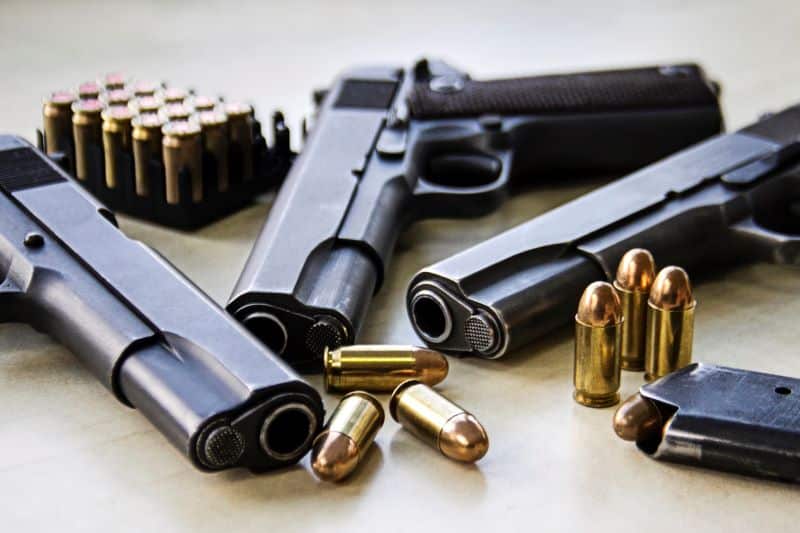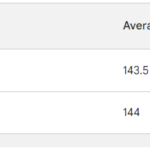Understanding the composition and capacity of bullet rounds is crucial in the realm of guns for hobbyists, sport shooters, and anyone interested in self-defense. Regardless of whether you are a novice or experienced gun owner, knowing the average number of bullets in a round will help you make an informed decision when selecting a handgun and ammunition. In this post, we’ll explore the fascinating world of bullet rounds, taking a closer look at their different variations, factors that affect bullet capacity, typical round counts, speciality ammunition, and other details. Commence now!
1. Establishment
Table of Contents
Gun ammo is the ammunition that is loaded into guns for firing. A round of ammunition consists of a cartridge casing, a primer, a propellant, and a bullet projectile. A bullet round’s capacity, which varies depending on a variety of factors, dictates how many rounds it can store.
2. Understanding Bullet Rounds
2.1 Cartridges: The Building Blocks
Cartridges, also referred to as bullet rounds, are independent units of ammo. They are designed to be easy to put in and take out of firearms. The actual projectile fired from the gun, the bullet, is a component of a whole round of bullets.
2.2 Exploring Bullet Types
Bullet rounds come in a variety of varieties, such as full metal jacket (FMJ), hollow point (HP), soft point (SP), and others. From self-defense to target shooting, each type has a variety of applications. The type of bullet can also affect the volume of the round.
3. Factors Affecting Bullet Capacity
A variety of factors affect a bullet round’s capacity. Knowing these features will help you better understand why different weapons have varied round counts.
3.1 Influence of Firearm Design
The design of a handgun has a big impact on how many bullets it can hold. The size and layout of a rifle’s magazine have a significant impact on how many bullets it can hold.
3.2 Calibre Considerations
The calibre of a firearm—defined as the internal diameter of the barrel—determines the size of the bullet cartridge that it can hold. Smaller calibres frequently have a higher round capacity than larger calibres, which may store fewer rounds.
3.3 Magazine Matters
The magazine, which is a component of the handgun, holds the bullets and feeds them into the chamber. Though magazine capacities can vary widely, guns with larger magazines often contain more bullets.
4. Bullet Standard Round Counts
Numerous rounds can be fired, depending on the type of firearm and the intended use. The following list of average round counts for various types of guns includes:
4.1 Handguns: Small and Versatile
Handguns typically have a round count of 6 to 17 depending on the manufacturer, calibre, and magazine capacity. Compact pistols usually have a lesser magazine capacity than full-sized handguns.
4.2 Rifles: Power and Precision
Rifles frequently have a higher round capacity than handguns. Depending on the kind of rifle, the calibre, and the arrangement of the magazines, the number of rounds can range from 5 to 30 or more. Some specialty weapons may even support larger magazines for specific uses.
4.3 Shotguns: A Different Approach
Shotguns stand out because they typically discharge shells rather than standard bullets. A shotgun round might contain one slug or multiple pellets. Depending on how they were made and what they were meant for, shotguns can store anywhere from 1 to 8 shells.
5. Speciality Ammunition: Beyond the Basics
In addition to standard bullet rounds, there is also specialized ammunition for specific applications. Tracer bullets, incendiary rounds, and armor-piercing projectiles are a few examples. These specialty rounds may have different capacities and be subject to stricter requirements.
6. Vital Points to Bear in Mind
In addition to round capacity, the following factors should be considered while choosing guns and ammunition:
6.1 Purpose and Use
The intended application of the firearm, such as self-defense, target shooting, or hunting, should have an impact on your choice. For each application, different bullet types, calibers, and capacities can be required.
6.2 Legal Restrictions
It is essential to comprehend local laws and ordinances controlling the ownership of weapons and ammunition. There are restrictions in place in a number of regions regarding magazine capacity and particular kinds of ammunition.
7. The Decision
Knowing the number of rounds per bullet is crucial for gun enthusiasts. If you consider elements like firearm design, calibre, magazine capacity, and intended applications, you may make an informed decision when selecting firearms and ammunition. Always follow local rules and ordinances to ensure responsible ownership and usage.
FAQs
Q1: Can I alter a gun’s round capacity?
Yes, there are situations in which you can alter a gun’s magazine capacity. However, it is important to keep in mind that any modifications made to firearms must be done cautiously, legally, and in compliance with all current regulations.
Q2: Do all jurisdictions have restrictions on the maximum number of rounds a bullet can carry?
Each jurisdiction has different restrictions on the maximum number of rounds a bullet can carry. It is crucial to familiarize yourself with the laws and regulations that are relevant to your area in order to ensure compliance.
Q3: Can special ammo be used with any type of firearm?
No, specific laws apply to specialty ammunition. Before using specialized ammunition, make sure to verify the rules and regulations in your country to determine if it is permitted.
Q4: What factors should I consider while picking a gun for self-defense?
When selecting a firearm for self-defense, factors including use, dependability, ergonomics, and ammo capacity should be taken into consideration. It is vital to consult experts or professionals for specialized advice.
Q5: Where can I learn more about the laws and regulations that apply to firearms?
For further information about local firearm laws and restrictions, it is advisable to contact local law enforcement organizations, firearm advocacy groups, or attorneys that specialize in firearms-related matters.

I’m a student. I like writing about famous people. I will cover biography of all the latest and trending people world wide. Stay tuned with me on Biographyly.com. Don’t forget to share our contents with your friends.




